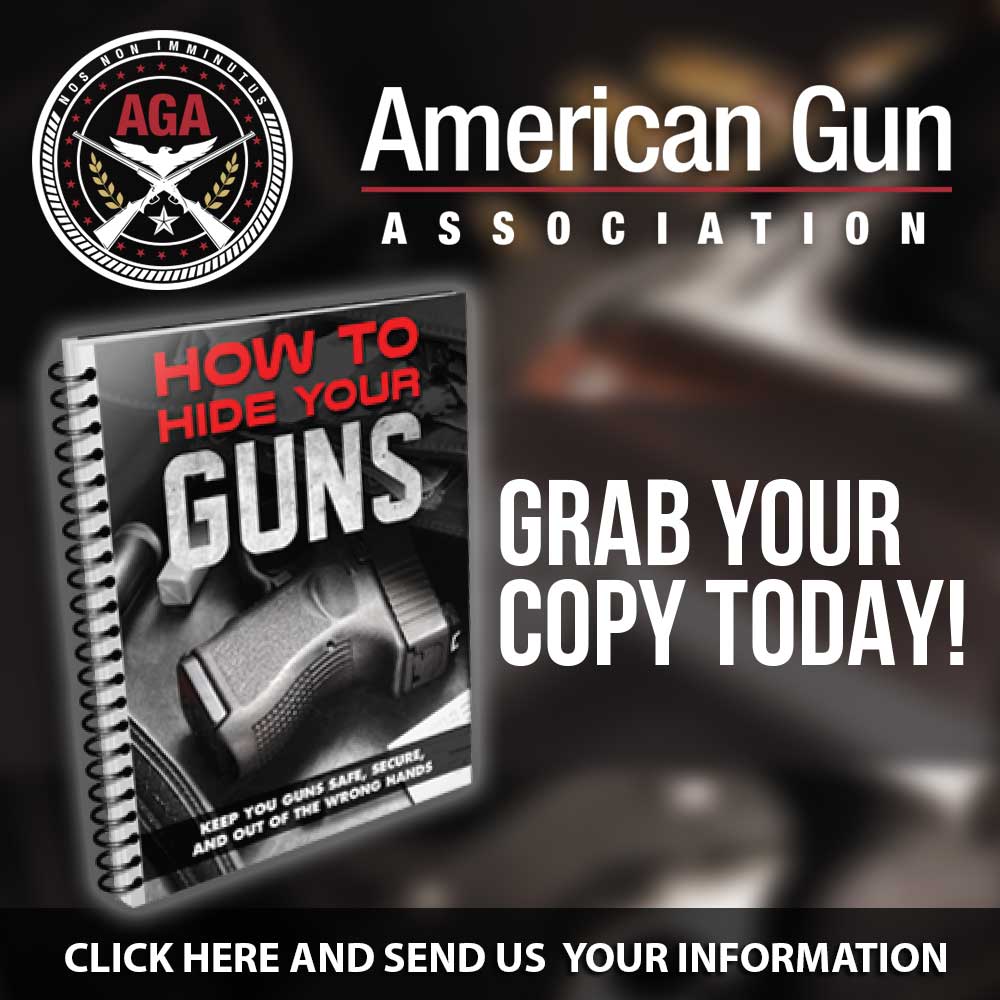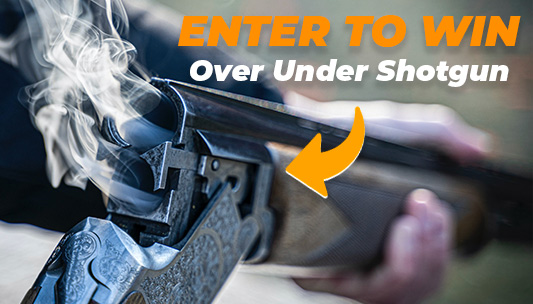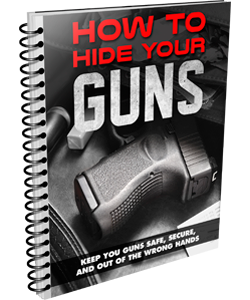Best Handguns for Personal Carry
Best handguns for personal carry. Carrying a handgun for self-defense is a serious decision that requires careful consideration. With so many available options, choosing a suitable handgun can be overwhelming. This article will explore the best handguns for personal carry, considering size, caliber, concealability, capacity, and reliability factors. We will also discuss holster options, training, legal considerations, and permit requirements. By the end, you'll have a clearer understanding of the top handguns suitable for personal carry.
Understanding the Importance of Personal Carry Handguns
Personal carry handguns serve as a means of self-defense in potentially dangerous situations. Best handguns for personal carry. Whether you're concerned about personal safety or want to be prepared for unexpected threats, having a reliable handgun can provide security. However, choosing a firearm that suits your needs and preferences is essential.
Considerations to Make When Selecting a Handgun for Personal Carry
Several key factors come into play when selecting a handgun for personal carry.
Size and Weight: The size and weight of a handgun are crucial considerations, as they impact both comfort and concealability. A compact, lightweight gun is generally easier to carry and conceal for extended periods.
Caliber: A handgun's caliber refers to its barrel's internal diameter and determines the size of the ammunition it fires. Consider a caliber that balances stopping power and manageable recoil, ensuring you can handle the firearm effectively.
Concealability: Concealability is vital for personal carry handguns, as they are typically worn discreetly. Look for firearms with slim profiles, shorter barrel lengths, and minimal printing to ensure adequate concealment.
Capacity: The capacity of a handgun refers to the number of rounds it can hold. Strike a balance between power and comfort, considering grip size and ergonomics.
Reliability: Reliability is non-negotiable when it comes to personal carry handguns. Choose a firearm from reputable manufacturers known for producing reliable guns that function consistently when you need them the most.
Top Handgun Recommendations for Personal Carry
After considering the essential factors, the following handguns stand out as top recommendations for personal carry:
Glock 19
The Glock 19 is widely regarded as one of the best handguns for personal carry. It offers a balance between size, capacity, and reliability. With its compact design and 15+1 round capacity, the Glock 19 is suitable for concealed carry and home defense.
Smith & Wesson M&P Shield
The Smith & Wesson M&P Shield is famous for concealed carry due to its smart profile and lightweight design. It comes in various calibers, including 9mm and .40 S&W, and offers a range of magazine capacities.
Sig Sauer P365
The Sig Sauer P365 is known for its impressive magazine capacity, offering a 10+1 or 12+1 round capacity in a compact frame. This striker-fired pistol is highly concealable, making it ideal for everyday carry.
Springfield Armory XD-S
The Springfield Armory XD-S is a reliable single-stack pistol in different calibers, including 9mm and .45 ACP. It features a slim profile and offers excellent ergonomics, making it comfortable to carry.
Ruger LCP II
The Ruger LCP II is a fantastic choice for those seeking ultimate concealability. This lightweight and compact .380 ACP pistol can be easily concealed in a pocket or waistband holster.
Best Holster Options for Concealed Carry
To ensure the safe and secure carry of your chosen handgun, it's crucial to invest in a quality holster. Some popular holster options for concealed carry include inside-the-waistband (IWB) holsters, appendix carry holsters, and pocket holsters. Choose a holster that provides proper retention and a smooth draw while keeping the firearm in place.
Training and Practice for Effective Personal Carry
Owning a personal carry handgun is insufficient; proper training and regular practice are essential for practical use. Seek professional firearms training to learn safe handling, proper shooting techniques, and situational awareness. Practice regularly at the range to improve your shooting skills and familiarize yourself with your chosen handgun.
Legal Considerations and Permit Requirements
Before carrying a handgun for personal protection, it's crucial to understand the legal considerations and permit requirements in your jurisdiction. Familiarize yourself with local laws regarding concealed carry permits, self-defense laws, and any restrictions on firearm types or magazine capacities.
Which Gun is Best for Personal Use?
Choosing the “best” gun for personal use is subjective and depends on various factors such as intended purpose, personal preferences, local laws and regulations, and individual skill level. It's important to note that responsible gun ownership requires proper training, adherence to local laws, and a commitment to safety.
Numerous types of firearms are available on the market, each with its own characteristics and uses. Here, we'll discuss some popular categories of guns commonly considered for personal use, highlighting their features and potential applications:
- Handguns: Handguns, also known as pistols or revolvers, are compact firearms designed to be operated with one hand. They are highly versatile and suitable for personal defense, concealed carry, and target shooting. Handguns have different calibers and configurations, including semi-automatic pistols and double-action revolvers.
- Shotguns: Shotguns are known for their wide muzzle and ability to shoot a spread of projectiles, such as pellets or slugs. They are popular for home defense, hunting small game, and sport shooting disciplines like trap or skeet. Shotguns offer various options, such as pump-action, semi-automatic, and break-action designs.
- Rifles: Rifles are long-barreled firearms designed for accuracy and longer-range shooting. They come in different action types, including bolt-action, lever-action, semi-automatic, and more. Rifles are commonly used for hunting, precision shooting, and sport shooting competitions. It's important to note that certain rifle configurations may be subject to stricter regulations and licensing requirements.
- Sporting rifles: Sporting rifles, such as AR-15 variants, are popular among firearms enthusiasts for target shooting, competitive shooting, and recreational use. They typically have detachable magazines and offer customizable features, allowing users to tailor the rifle to their preferences. However, local laws and regulations may dictate restrictions on certain features and configurations.
When selecting a firearm for personal use, consider the following factors:
- Purpose: Determine the primary intended use of the firearm, such as self-defense, target shooting, or hunting. This will help narrow down the appropriate category and caliber.
- Comfort and Fit: Ensure that the gun feels comfortable in your hands and that you can handle it effectively. Factors like grip size, weight, and ergonomics can significantly impact your shooting experience and accuracy.
- Training and Experience: Consider your level of firearm training and experience. If you are a beginner, seek proper training and consider starting with a firearm known for its ease of use and reliability.
- Local Laws and Regulations: Familiarize yourself with firearm ownership laws and regulations in your jurisdiction. Different regions have varying restrictions on firearm types, magazine capacities, barrel lengths, and other features.
- Safety Features: Look for firearms with inherent safety features, such as manual safeties, loaded chamber indicators, and trigger safeties. Invest in a secure storage solution, such as a locked gun safe, to prevent unauthorized access.
Remember, responsible firearm ownership goes beyond the selection of the firearm itself. It involves ongoing education, safe storage, regular practice, and compliance with local laws. Consider consulting with knowledgeable professionals, such as firearms instructors or experienced gun owners, to help guide your decision-making process.
What is the Best Size Handgun to Carry?
The choice of handgun size for carry is influenced by several factors, including personal preferences, body size and shape, clothing style, comfort, and concealment requirements. It's important to find a balance between a size that is easy to carry and one that offers adequate firepower and shoot ability. Here are some common sizes of handguns for carry:
- Subcompact/Compact: Subcompact and compact handguns are popular choices for concealed carry due to their small size and ease of concealment. They typically have shorter barrels and grip frames, making them discreetly easier to carry. These handguns are commonly chambered in smaller calibers like 9mm, .380 ACP, or .40 S&W. While they may have reduced magazine capacities and shorter sight radiuses compared to larger handguns, they offer the advantage of enhanced concealability and are generally lighter and more comfortable for everyday carry.
- Mid-Size: Mid-size handguns strike a balance between concealability and shoot ability. They usually have longer grip frames and barrels than subcompacts, providing a more comfortable shooting experience and increased accuracy. Mid-size handguns are available in various calibers, including popular options like 9mm, .45 ACP, or .40 S&W. They often have higher magazine capacities and can accommodate accessories like weapon lights or red dot sights.
- Full-Size: Full-size handguns offer the advantages of extended sight radius, increased magazine capacity, and improved shoot ability due to their larger size and weight. While they may be more challenging to conceal, they provide a solid grip and enhanced control during shooting. Full-size handguns are typically chambered in popular calibers like 9mm, .45 ACP, or .40 S&W. They are commonly used by law enforcement officers, competitive shooters, and individuals prioritizing maximum firepower and accuracy over concealability.
The choice of handgun size for carry ultimately depends on individual preferences, body type, and clothing choices. It's crucial to consider factors such as comfort, ease of access, and the ability to conceal the firearm effectively. Additionally, proper training in drawing, presenting, and shooting from concealment is essential to ensure the safe and effective use of the chosen handgun.
What is the Easiest Handgun to Conceal Carry?
When choosing the easiest handgun to conceal carry, there are several factors to consider, including the firearm's size, weight, grip, and overall design. While personal preferences and body shape can play a role in determining the ideal concealed carry a handgun, here are a few popular options known for their ease of concealment:
- Subcompact Pistols: Subcompact pistols are specifically designed for concealed carry. These handguns are compact, lightweight, and have shorter barrels and grip frames, making them easier to conceal under clothing. They are typically chambered in smaller calibers such as 9mm, .380 ACP, or .40 S&W. Examples of subcompact pistols include the Glock 43, Smith & Wesson M&P Shield, or the SIG Sauer P365.
- Single-Stack Pistols: Single-stack pistols have narrower grip frames that accommodate a single column of ammunition in the magazine. This design reduces the width of the pistol, making it more comfortable for concealed carry. These handguns have slimmer profiles, making them easier to conceal inside the waistband (IWB) or appendix carry holsters. Popular single-stack pistols include the Glock 43X, Springfield Armory XD-S, or the Walther PPS M2.
- Pocket Pistols: Pocket pistols are ultra-compact handguns designed for convenient and discreet carry in a pocket or purse. They are typically chambered in smaller calibers like .380 ACP or .22 LR, and their small size makes them highly concealable. Examples of pocket pistols include the Ruger LCP, Smith & Wesson Bodyguard 380, or the SIG Sauer P238.
- Revolvers: Revolvers, particularly snub-nose models, are known for their compact size and simplicity. With their shorter barrels and smaller frames, they are relatively easy to conceal. Revolvers are available in various calibers, including .38 Special and .357 Magnum. Popular concealed carry revolvers include the Smith & Wesson J-Frame models, Ruger LCR, or the Kimber K6s.
It's important to note that while smaller handguns are easier to conceal, they often come with trade-offs, such as reduced magazine capacity, shorter sight radius, and potentially increased recoil. Finding a balance between ease of concealment and your ability to effectively shoot and control the firearm is crucial. Additionally, thorough training in safe and responsible concealed carry techniques is vital for carrying any firearm discreetly and effectively.
Conclusion
Choosing the best handgun for personal carry requires careful evaluation of various factors, including size, caliber, concealability, capacity, and reliability. The Glock 19, Smith & Wesson M&P Shield, Sig Sauer P365, Springfield Armory XD-S, and Ruger LCP II are among the top recommendations for personal carry handguns. Remember to pair your chosen firearm with a suitable holster, prioritize training and practice, and stay informed about the legal implications of carrying a gun for self-defense.
Related Posts:
Best Handguns for Law Enforcement
Best Handguns for Recreational Shooting
Best Handguns for Home Invasion Scenarios





